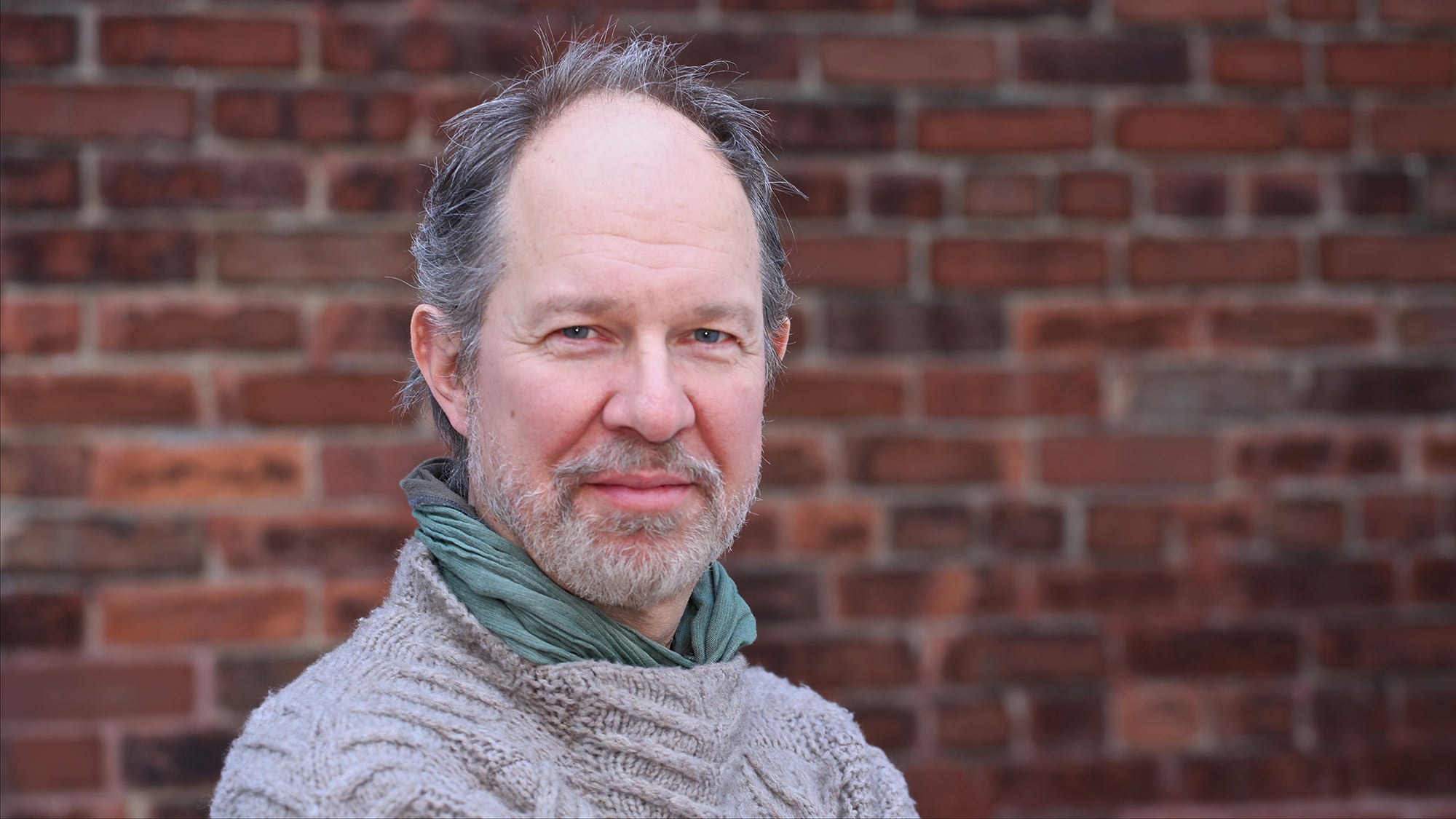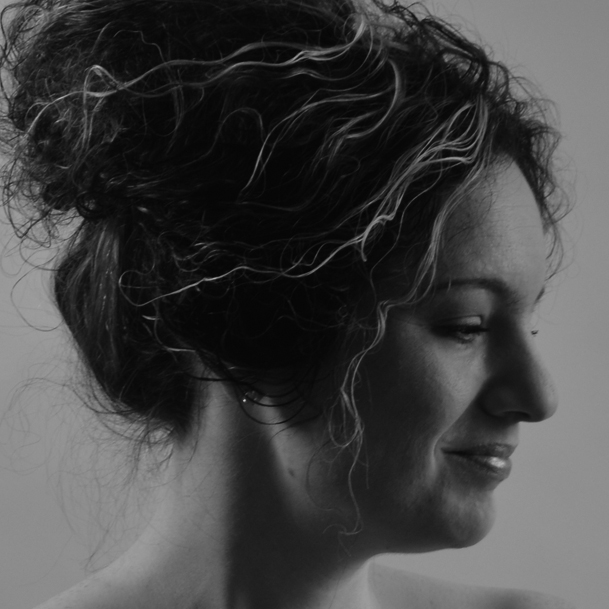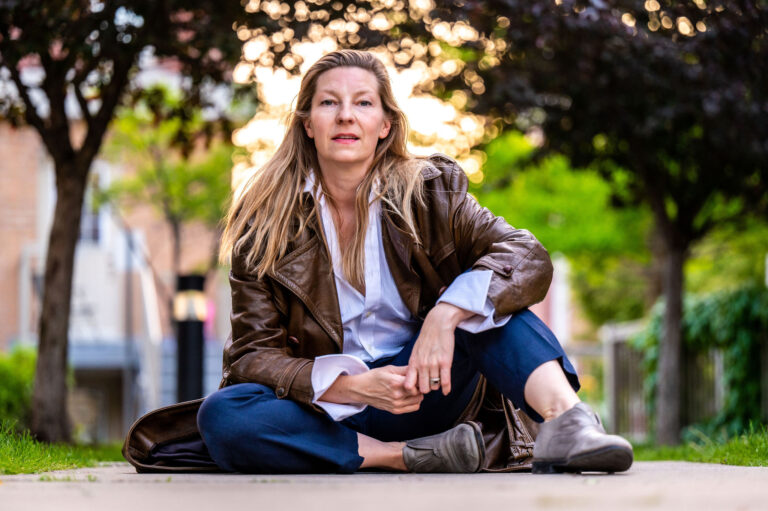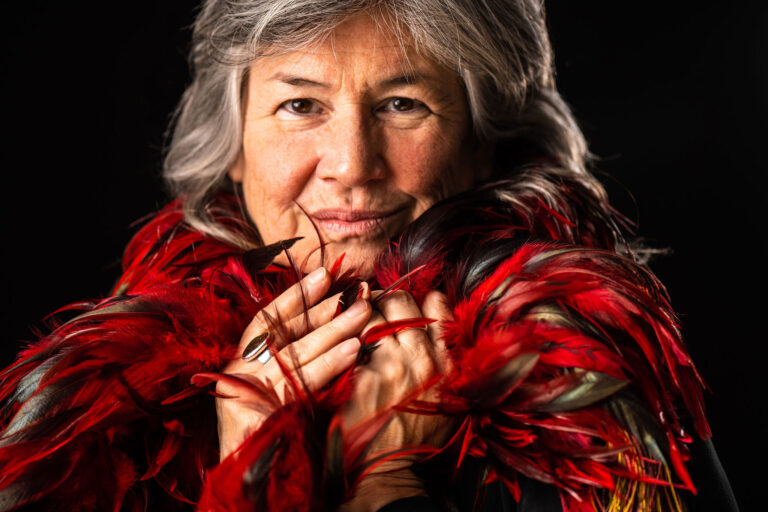Spotlight: Diego Matamoros
Mention the name “Diego Matamoros” to any actor in Toronto, or perhaps even Canada, and you’re more than likely to get responses coloured with praise and awe. Matamoros is one of the country’s most celebrated theatre artists; he’s been a mainstay at Soulpepper Theatre Company since its inception in the late 1990s, and has performed with the company he helped co-found every season of its existence, taking on both large and small roles in plays by Shakespeare, Chekhov, Molière, Ibsen, Beckett, Pinter, and Stoppard, among many others.
Meeting Matamoros one snowy afternoon, he gives the impression of a man at peace with himself and his work, yet possessing a passion that shows itself when he speaks about theatre as a collective force. His expressive face, framed with a white beard and bright eyes, and sonorous voice give one the impression of an avuncular artist figure, which certainly wouldn’t be at odds with his position as a mentor and teacher to many. This isn’t to say he isn’t an involved actor, but that status is one of the many identities he holds, and it would seem, frequently releases, as required. Embrace everything, cling to nothing, stay curious, always be connected: these seem to be the dictums guiding Matamoros’ artistic choices for close to five decades.
We meet in a coffee shop in Toronto’s Distillery District, a hangout for the city’s creative set. The walls are lined with artwork that is both traditional and creative, a neat if entirely incidental reflection of the work done by one of the country’s most awarded theatre outfits, which is located mere footsteps away. Soulpepper Theatre Company began with what Matamoros describes as “a triple mandate: training, productions, youth outreach.” Along with being a founding member, Matamoros is also a resident artist and Drummond-Dorrance Fellow. He’s been the recipient of multiple Dora Mavor Moore Awards and teaches members of the Soulpepper Academy, an intensive, immersive training program for young theatre artists.
All of Matamoros’ pursuits—juggling classical and modern roles, keeping a hectic rehearsal schedule, deep involvement with the Soulpepper Academy—leave little room for downtime. Is that a good thing, or a drain on creative resources? “It just is,” he says softly, a small smile spreading across his face. “One of the things you always know is that there are a lot more people who want to be artists than people who get to be artists, so the art and the work in some sense is different than a job. It’s not just a job. Northrop Frye, I think it was, said happiness or freedom is when what you have to do, and what you want to do, are the same thing. So that’s the position I’m fortunate to be in.”
That position is a fairly unique one, in Canadian theatre terms. As the only founding member of Soulpepper who has stayed on since the beginning exclusively as an actor, Matamoros enjoys the rare luxury of working year-round. For theatre actors, this is unheard of: even the established names who get top billing at Stratford and Shaw have four months of unemployment during the off-season. Matamoros’ exceptional level of job security allows him to focus on the quality of the work, rather than career-minded ambitions that could have taken him on to fame and fortune in the United States. “I find when I get into situations discussing things with fellow actors outside the company, it so quickly becomes about your career, and your agent, and the money, and the contract—and nothing to do with the work,” he says, his fingers gently curling around the handle of a teapot. “That’s partly because the work is private, but many actors I know quite well, we do talk about what we do in different ways.”
Albert Schultz, Soulpepper’s artistic director and a longtime friend and collaborator, says Matamoros isn’t driven by career concerns, and never has been. “On paper, Diego’s career is nonpareil,” he states, “and yet, he’s also the person who, of anyone I can think of, will very happily play any part you give him. One needs ego in order to explore, to bring one’s self, and size of one’s self, to the size of the task at hand, but his career ego is almost non-existent.”
Matamoros and Schultz have worked together many times since Soulpepper’s inception. Schutz has directed Matamoros in a myriad of works, including The Crucible (2012 and a remount in 2014), Idiot’s Delight (2014), Angels in America (2013 & 2014), Spoon River (2014 & 2015), Marat/Sade (2015), and The Dybbuk (2015). The pair also share an extensive onstage history, appearing as part of the company’s first season in Don Carlos and The Misanthrope, both directed by theatre legend Robin Phillips. They also performed in The Odd Couple (in 2008, 2011, and 2016) as well as in Our Town (in 1999, 2006, and its remount in 2011), Platonov (1999 and 2000), Betrayal (2000), and The Guardsman (2009).
“Diego will be happy to be a part of any project—he’ll play the smallest of parts, or the largest of parts,” Schultz says. “When he’s there, he gives and gives and gives, and his work is always interesting and always engaged, so… I find him a dream. In the rehearsal hall, he’s also a really smart, opinionated guy, and I think some could look at Diego and think, ‘Oh dear, he’s one of those guys who’s very difficult,’ but whenever I’ve directed him, he’s been absolutely a pussycat.”
Matamoros’ approach is one Schultz attributes to the fact that his friend’s focus and sense of self spring from a very real place. “He has a kind of zen about him,” Schultz says, before quickly correcting himself, “Well, it’s not a kind of zen, he actually practises zen, and as such he’s a wonderful sort of pillar in any kind of storm. His feet are on the ground and he’s always there, always steadfast.”
One role Matamoros is known and celebrated for is the title role in Chekhov’s classic Uncle Vanya, which he played in 2001, 2002, and again in 2008. Having played it so many times, one has to wonder if his connection with texts—Chekhov’s included—changes over time. “Yeah of course,” he says, holding up a steaming cup of tea. “I think as you get older, ideally if you have the time to work on it, it deepens. It’s not often a huge difference, it’s not like you’re changing your entire outlook on it, but in small ways, it’s very interesting and beautiful.”
People outside the acting community are often stunned at actors’ capacities for memorization, but Matamoros feels that such awe is misplaced. “You say, well, you didn’t have to memorize your mother’s name; you know it because you care about your mother, you care about your family, your friends, your work—you’re not memorizing. The only time people think you’re memorizing is when you don’t care; when you care, it’s no longer memorizing; it’s a misunderstanding from the outside as to what the actors’ profession is.”
That misunderstanding of what actors do can be muddled by creating or seeking stand-out stars. Schultz is quick to emphasize that Diego’s primary concern has always been the group itself, and not the individual. “Every artist has to have a healthy dash of ego and self, and self-preservation, if you will, Diego has that, but Diego has this other side which is that his primary fascination is with the collective good, and not the individual good. He doesn’t… hold on or come in with a bunch of ideas that have to be achieved for it to be a success. He goes on a journey.”
“The star is Soulpepper,” Matamoros says firmly, “it’s the company, and the ensemble, and the nature of the work. And my sense of it is that it’s collaborative… the work doesn’t happen with one particular actor, it happens between two—the magic happens here, in the air, or it doesn’t, or to whatever degree, or between several people. That’s what I train, and that’s what I work to do myself. If you are a wonderful actor surrounded by a mediocre company, that’s the experience, and whether consciously or not, that’s what audience will get. You’ll guide them toward that [attitude of] ‘I want to see that one person again and again and I don’t care about the rest’—and that’s not the message I’m interested in sending out as an artist.”
Related to that passion for the collective is an embrace of experimentation. “An actor is often justifying their presence by holding on to an idea they brought in or did yesterday that felt so good,” Schultz observes. “It’s such a vulnerable undertaking at the best of times, so there’s a holding-on that is a natural response. And whether it’s part of his spiritual practice, I don’t know, but Diego has very little of that, in my experience. He holds on to nothing unless it’s determined by the collective to serve the whole. There’s something very special about that… not much more than a handful that have the luxury of that kind of confidence.”
That confidence is as evident when Matamoros speaks off stage, as it is when he performs on it—confidence, mixed with a philosophical outlook that, even in a bustling, noisy coffee shop, exudes a remarkable degree of calm. “Reality and illusion are what make the theatre work, or any art form—we’re not always 100% sure of anything. People talk about, ‘Oh I had the rug pulled out from under my feet’—and this is because our existence, our day-to-day reality, is very tenuous. The theatre speaks to that.”
He quotes a line from Beckett’s play Endgame to emphasize his point. “When Hamm says to Clov, ‘What’s happening?’, it comes out of nowhere. I was intrigued by that line ever since I did the play: what does he mean? Now I’m beginning to understand, in every single way: what’s happening? We don’t know. For Beckett, that was the only thing you could say about this thing we call life; he refuses to say, ‘I know what I’m talking about.’ Humans need to know where they are, but they invent where they are—that’s why theatre is powerful.”










Comments